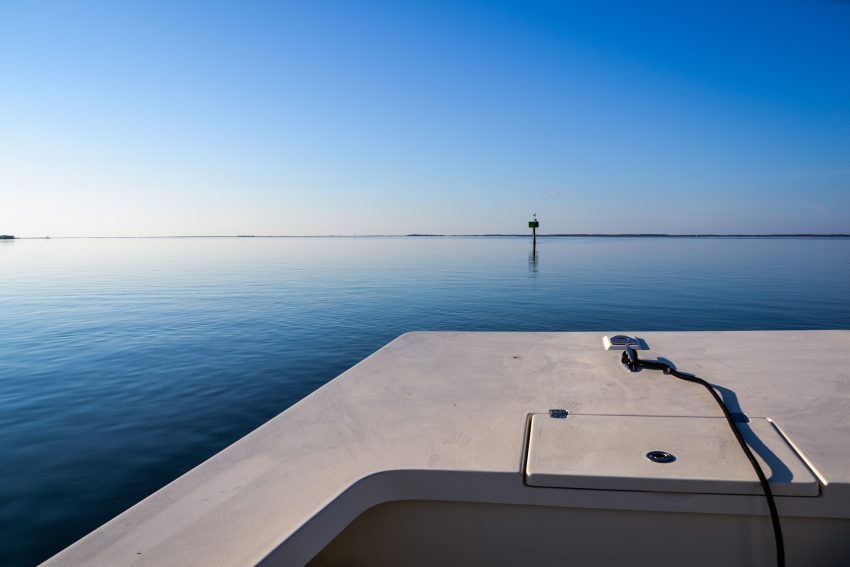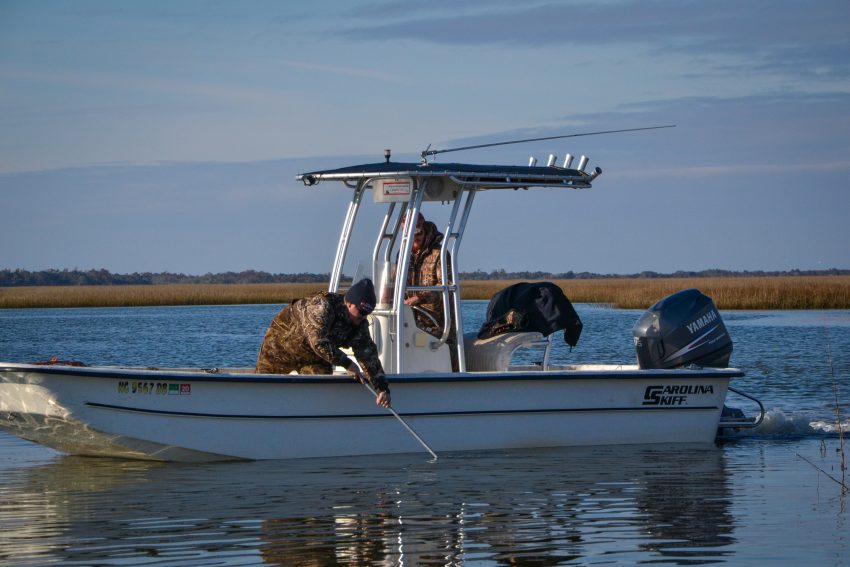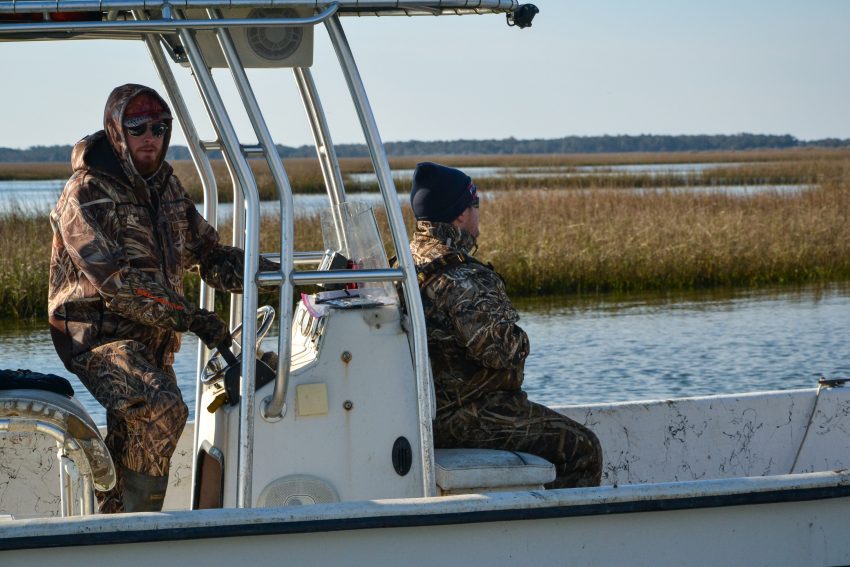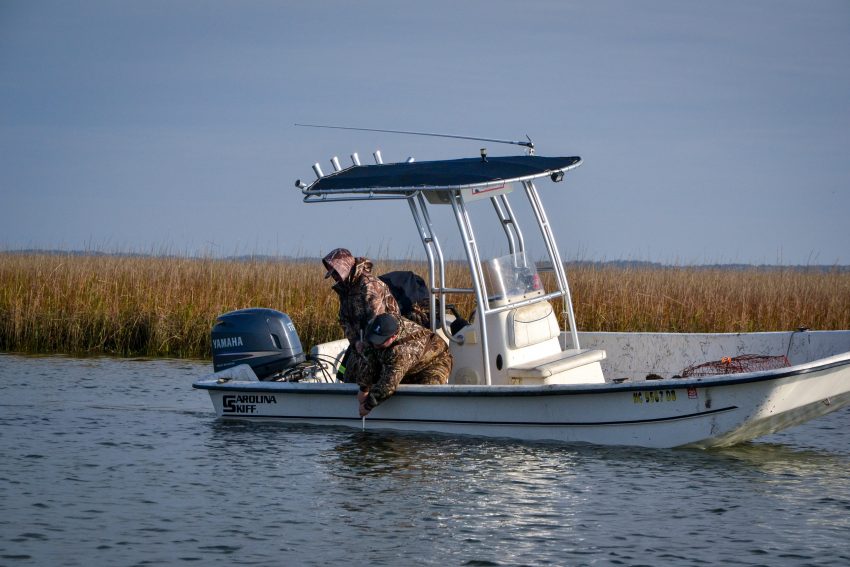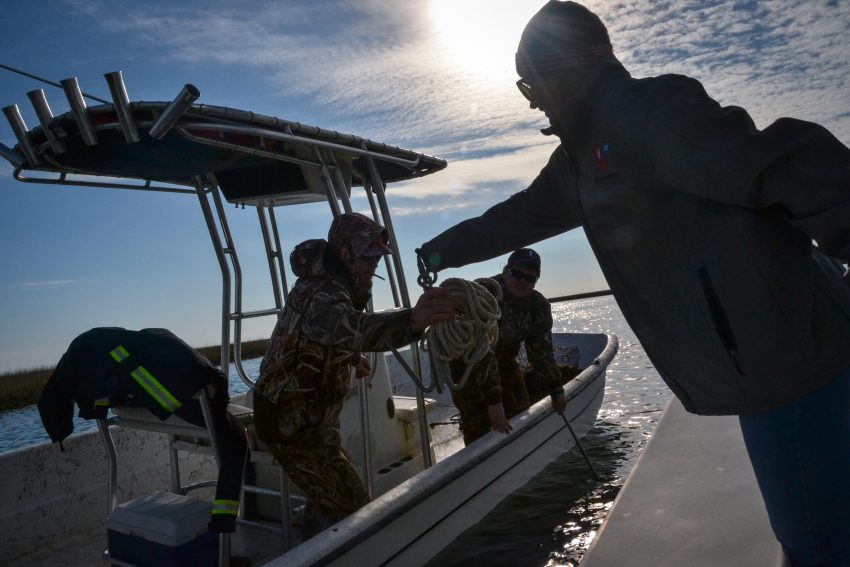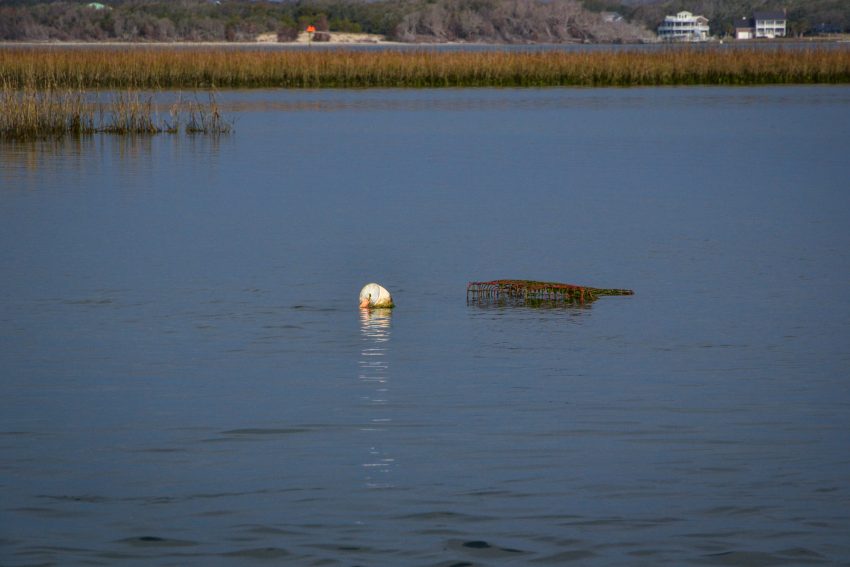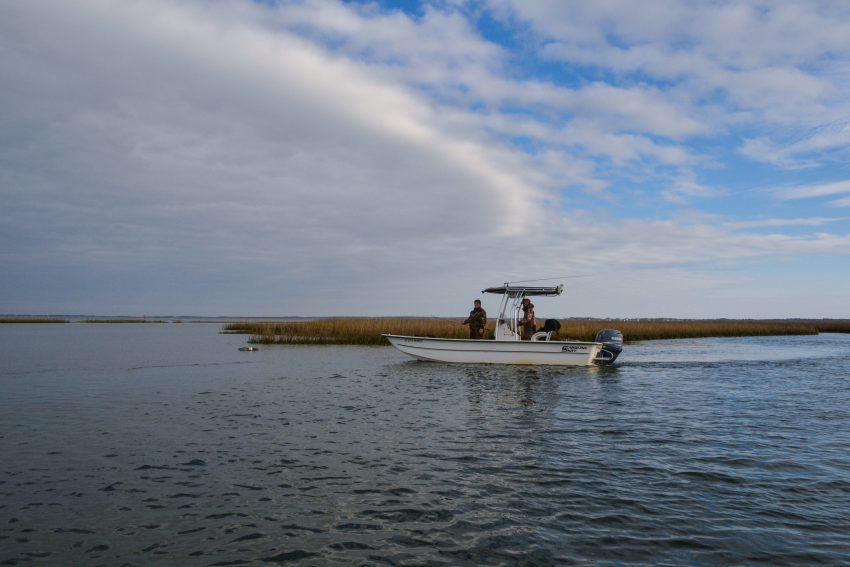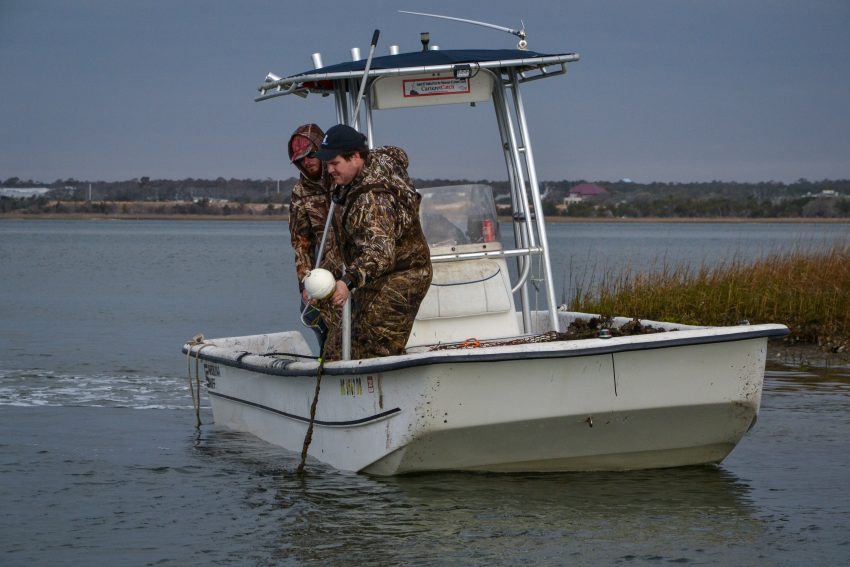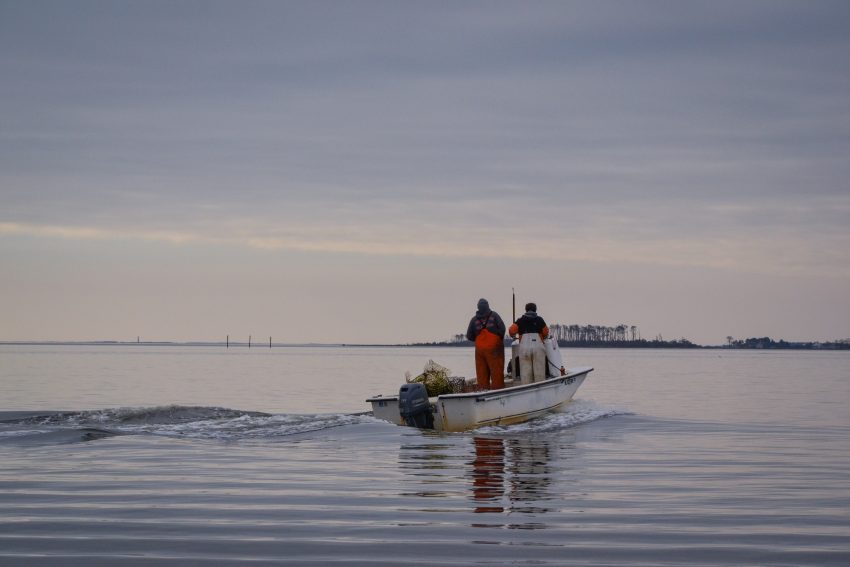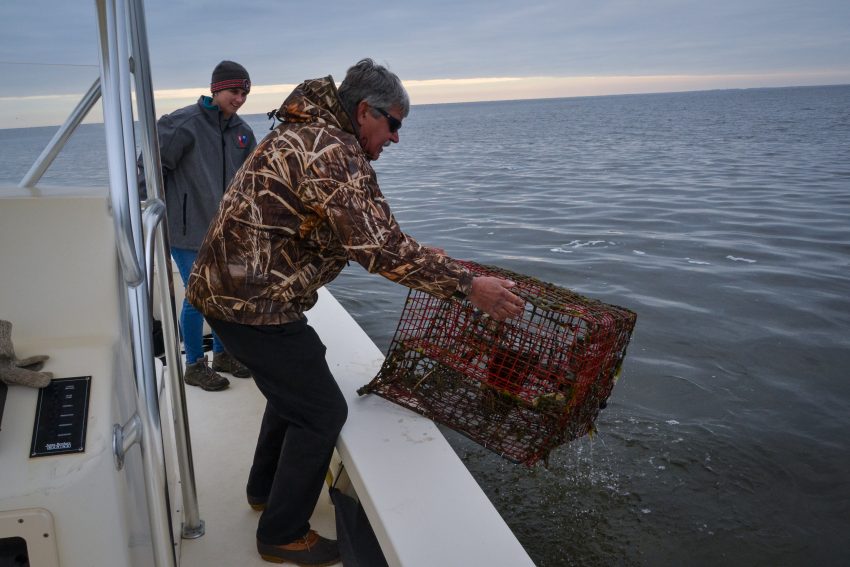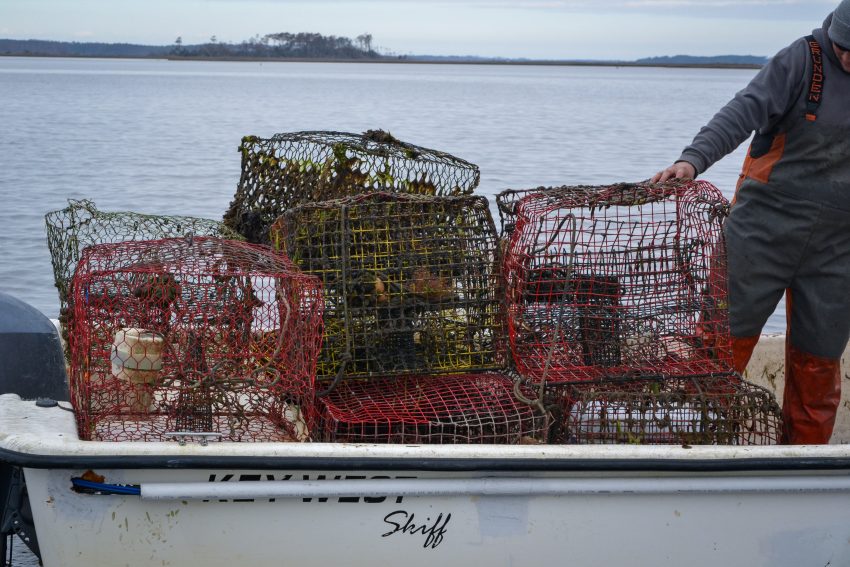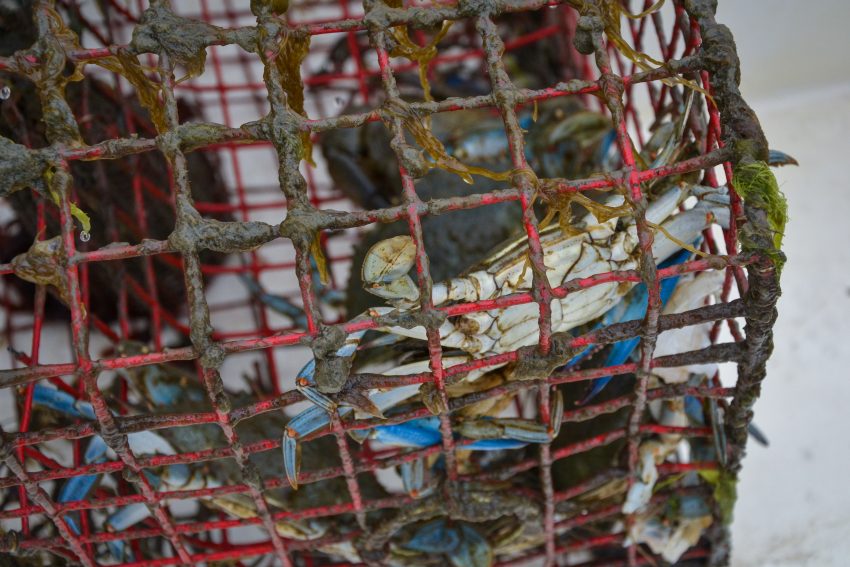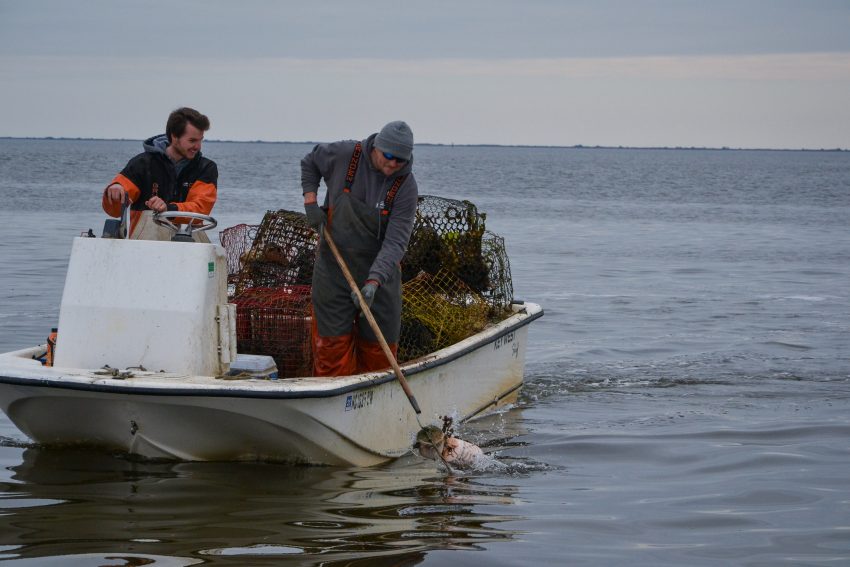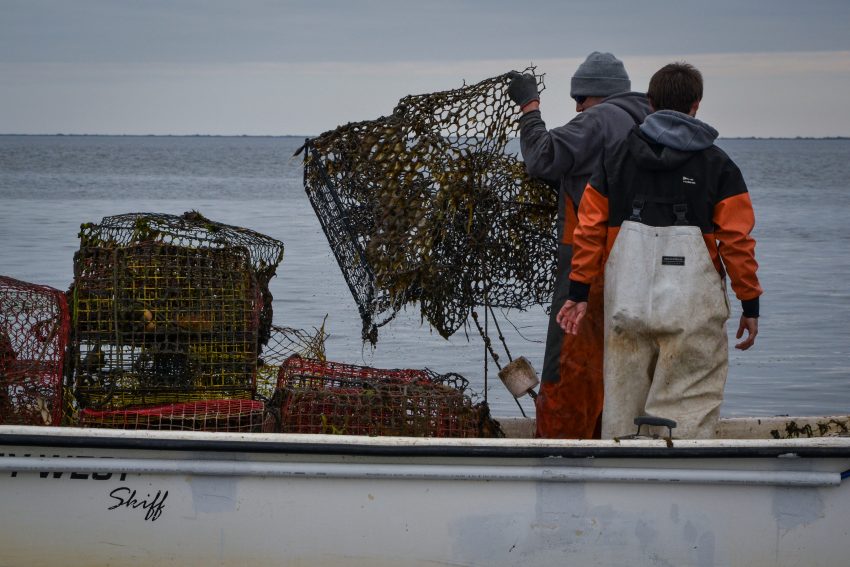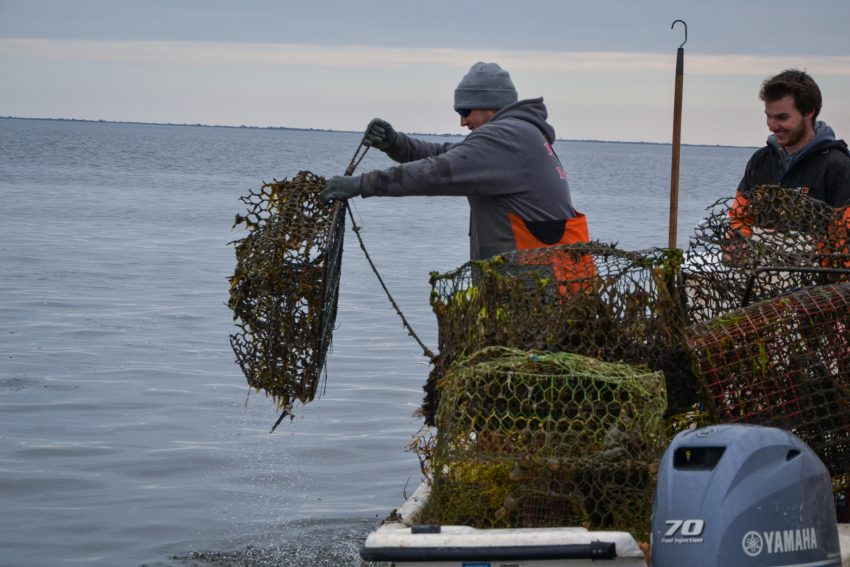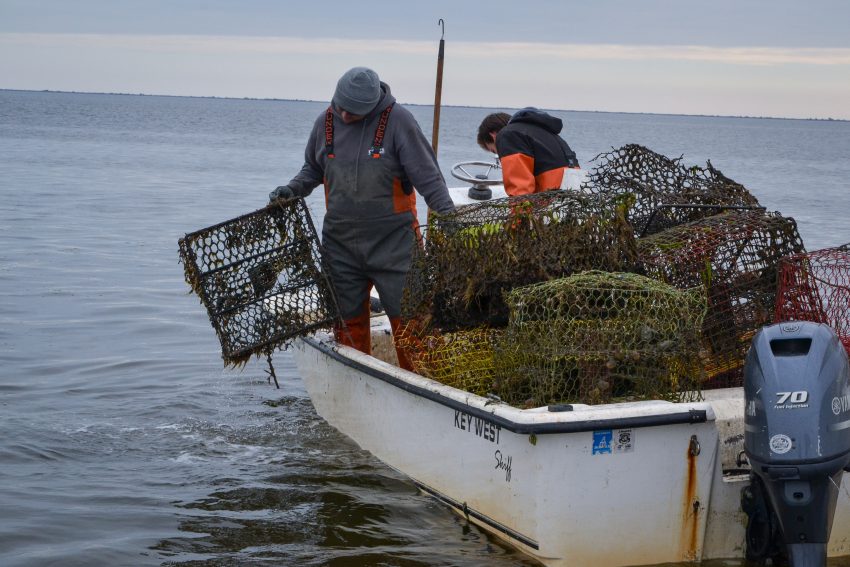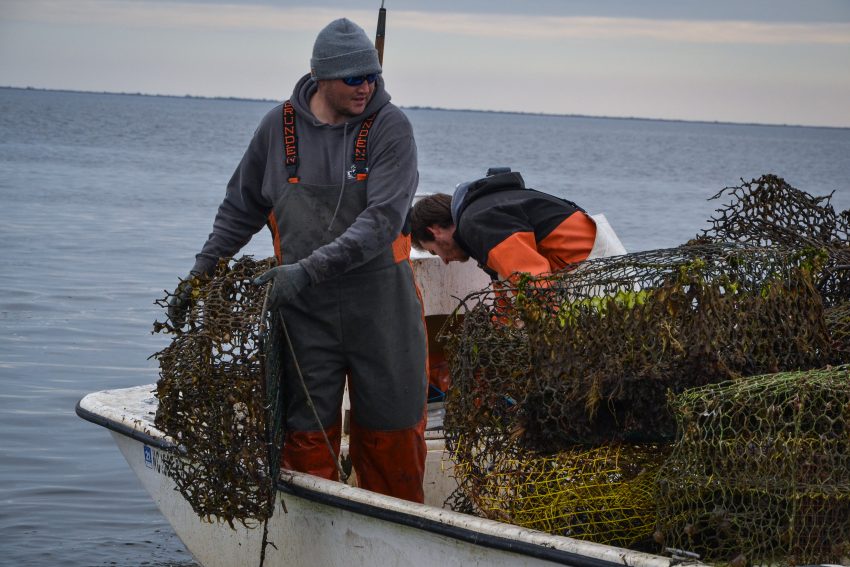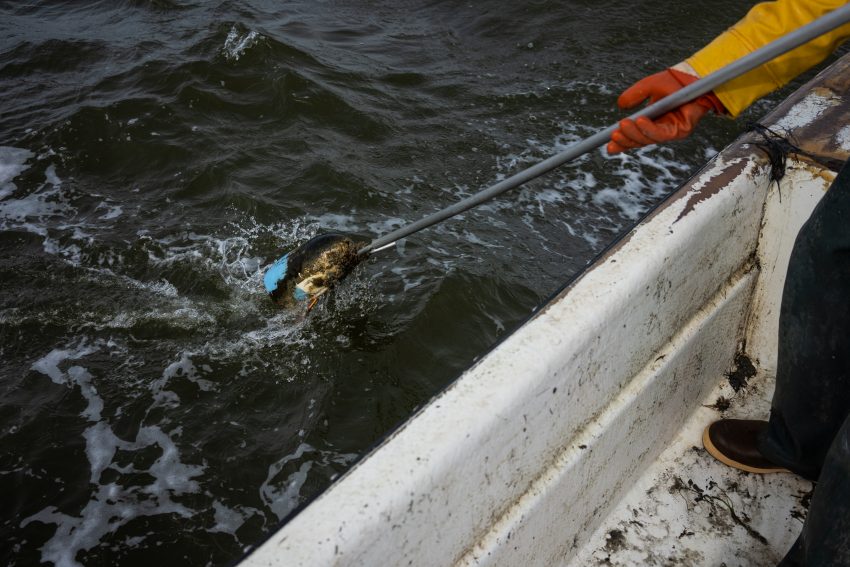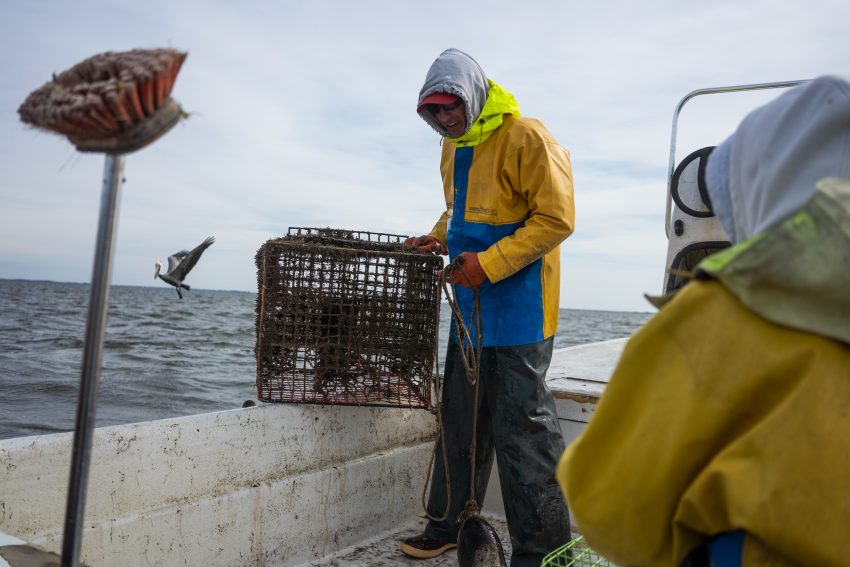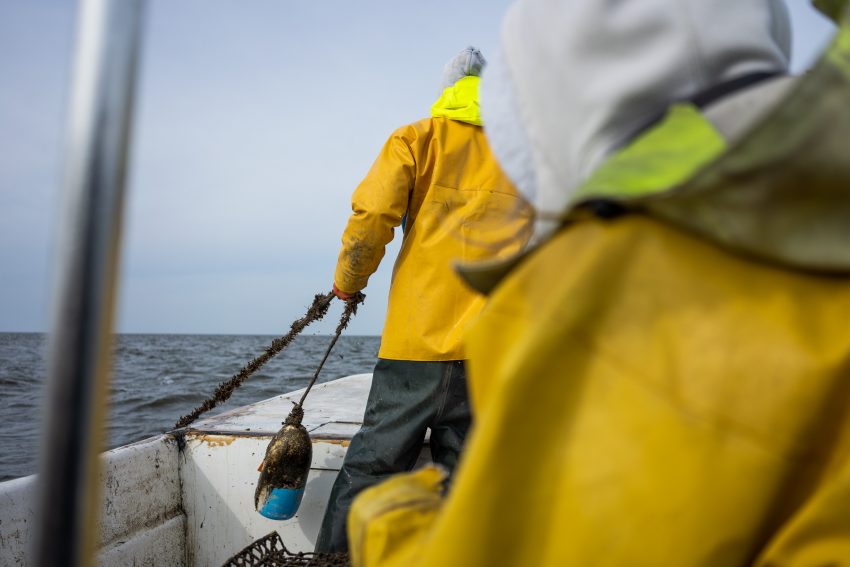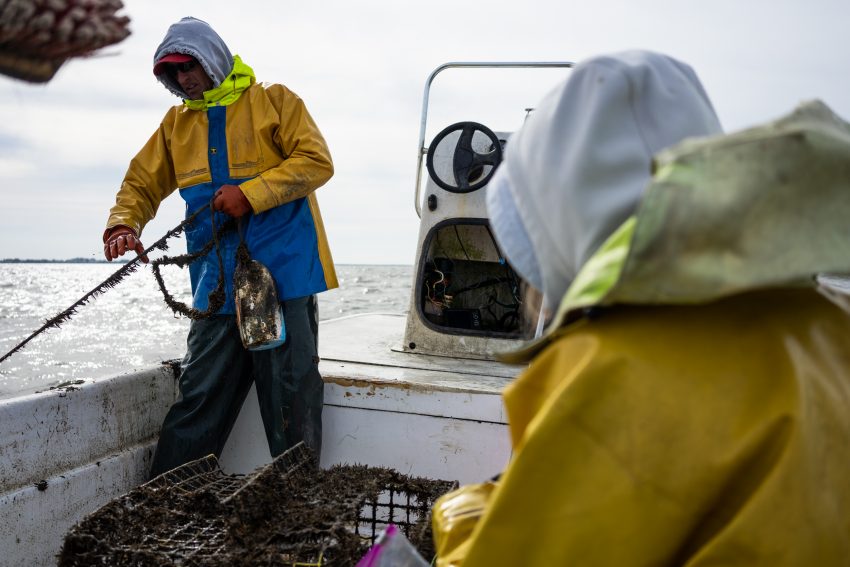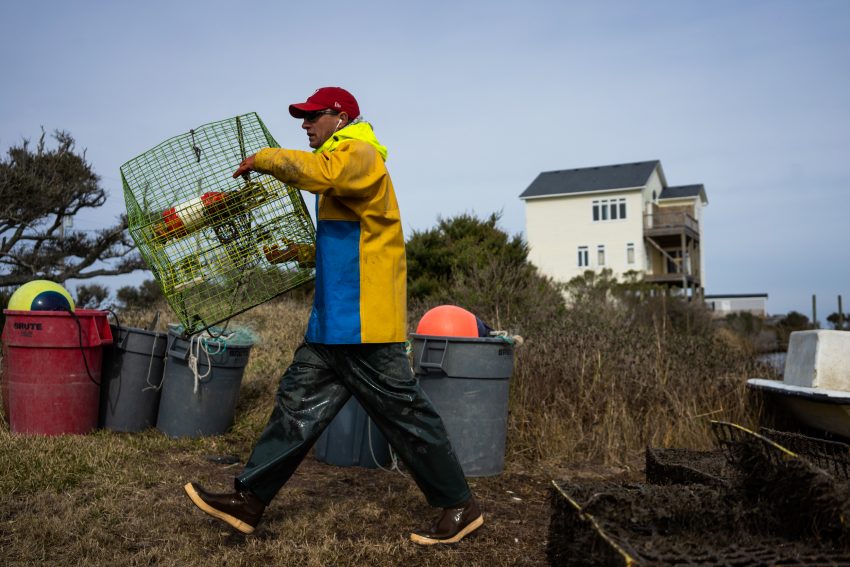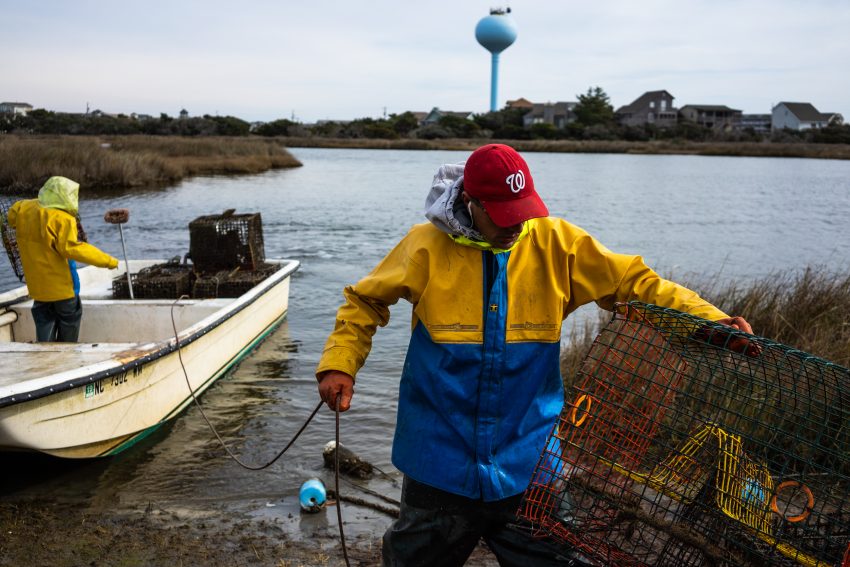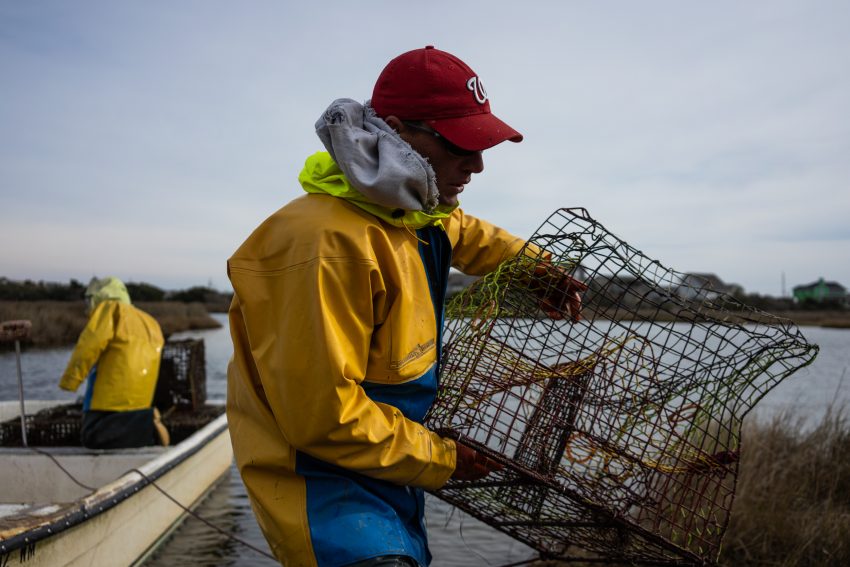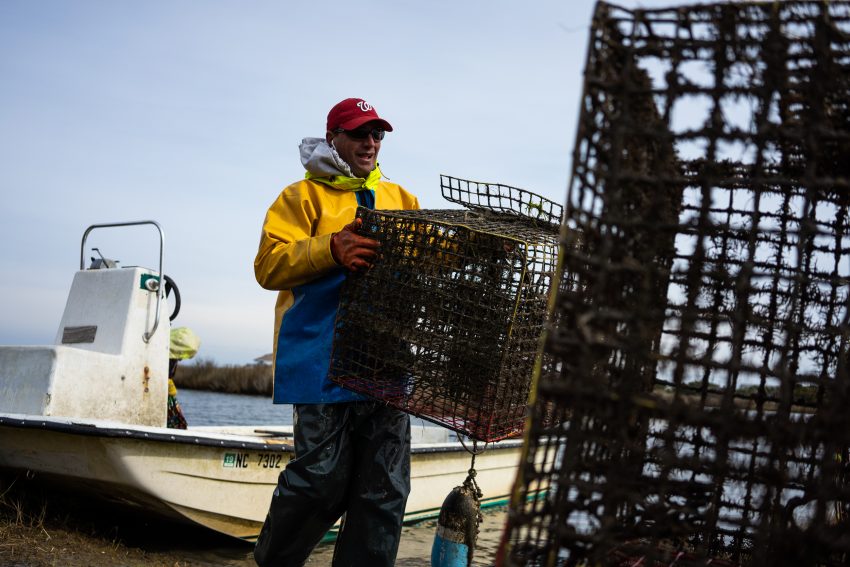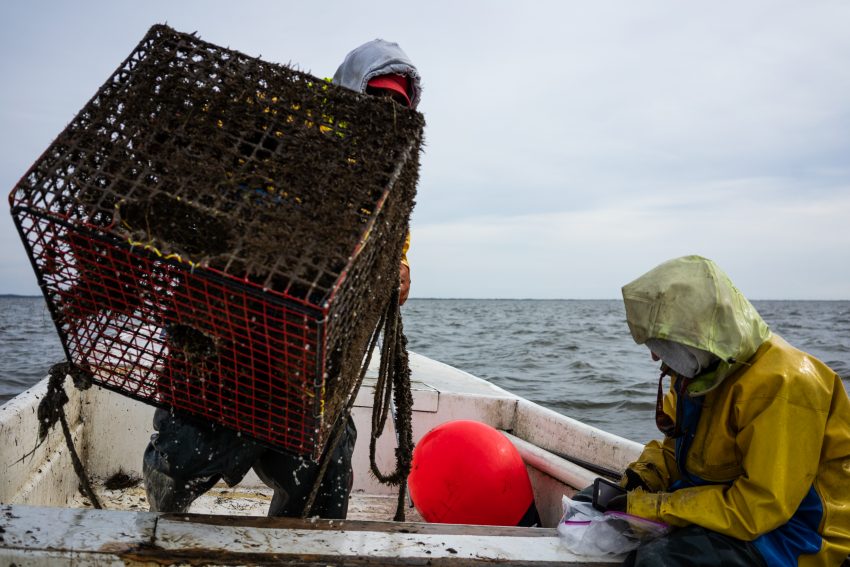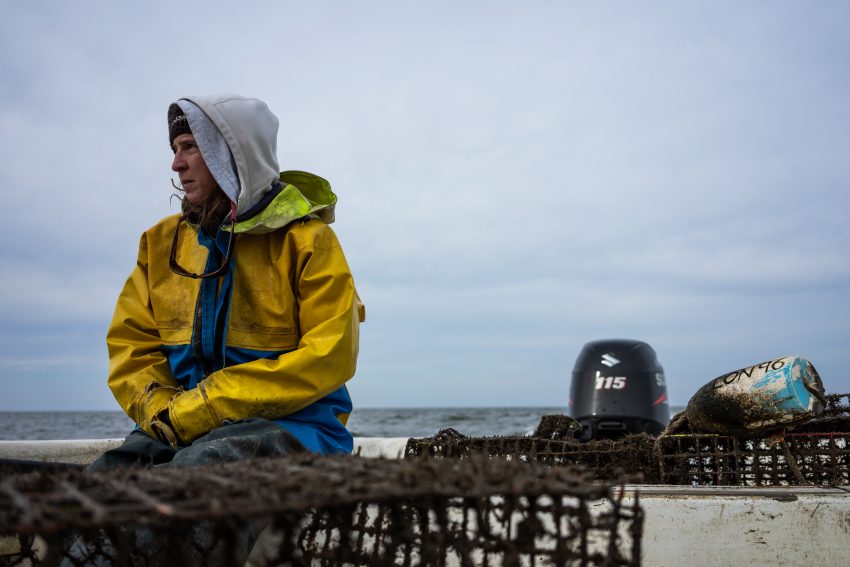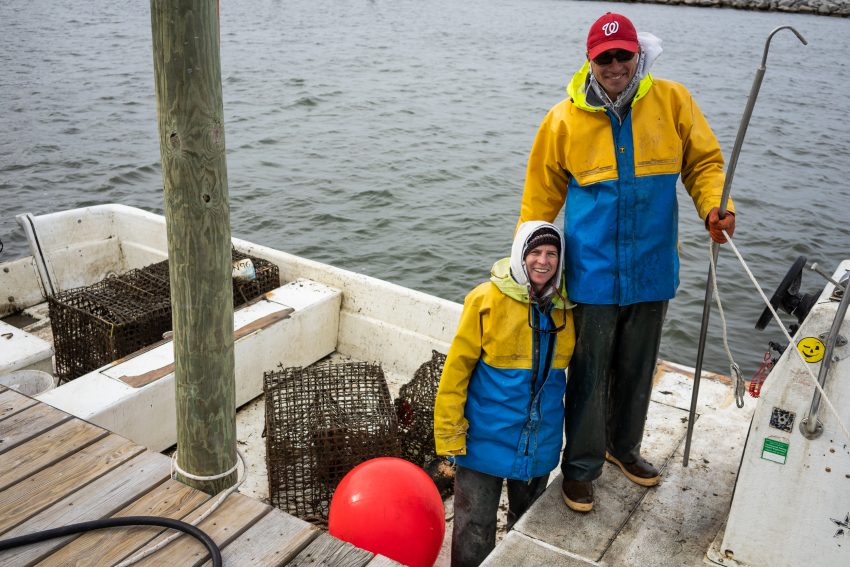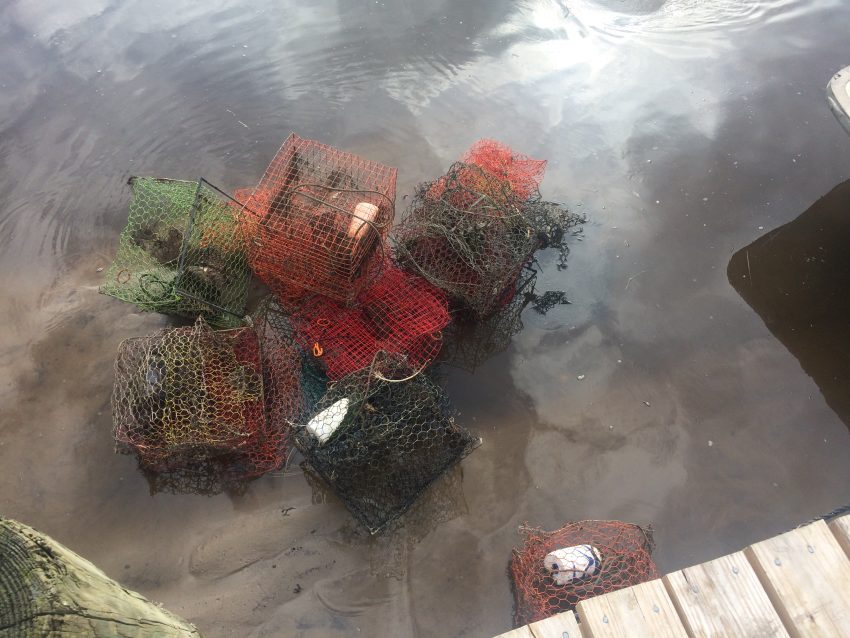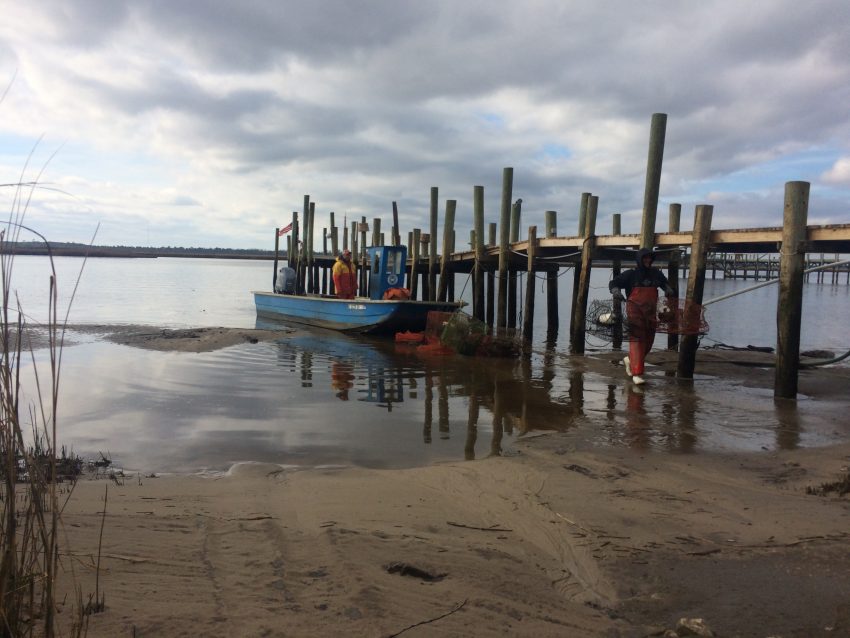A total of 78 commercial watermen and women worked in January 2019 to remove 3,112 crab pots from the North Carolina coast. The Lost Fishing Gear Recovery Project, is part of a statewide marine debris removal effort led by the North Carolina Coastal Federation with $100,000 from the North Carolina General Assembly.
Lost pots are dangerous to both boaters and wildlife when they get caught in man-made structures such as bridges or get displaced due to large storm events. Many of the pots collected this year had been displaced from Hurricanes Florence and Michael. Several of the pots proved especially difficult to retrieve as they were located on land due to the powerful winds and flooding from the storms.
The project takes place during the no-potting period when all crab pots must be removed from the water due to fishing regulations. This cleanup was conducted in all three Marine Patrol districts — covering all internal coastal waters.
The following is a region-by-region breakdown:
- In Marine Patrol District 1 — which covers the northeast region of the North Carolina coast from the Virginia line to Ocracoke — 24 boats made up of 48 commercial watermen picked up 1,714 crab pots.
- In Marine Patrol District 2 — which covers the central region of the North Carolina coast from Pungo River to Emerald Isle — eight boats made up of 16 commercial watermen picked up 1,159 crab pots.
- In Marine Patrol District 3 — which covers the southeast region of the coast from Cape Carteret to the South Carolina line — seven boats made up of 14 commercial watermen picked up 239 crab pots.
“I really enjoy the diversity of partnerships this project brings together, including the North Carolina Marine Patrol and the commercial watermen and women,” said Sara Hallas, coastal education coordinator at the federation’s Wanchese office.
“Each group are experts of the waterways and working together creates tremendous success.”
This was the sixth annual crab pot removal and the third year that the project has taken place statewide. Throughout the recovery project, all crews carried a tablet equipped with a custom program that was created for data collection in remote locations and utilizes existing satellite networks. The crews recorded physical and geographical attributes of each crab pot retrieved.
This project is part of the federation’s overall marine debris reduction campaign. All three federation offices kicked off this campaign with a volunteer cleanup in their regions on Jan. 12. An estimated 6.5 tons of marine debris was removed during these cleanups.
For more information on the progress of the Lost Fishing Gear Recovery Project over the past six years, visit nccoast.org/crabpotproject.
